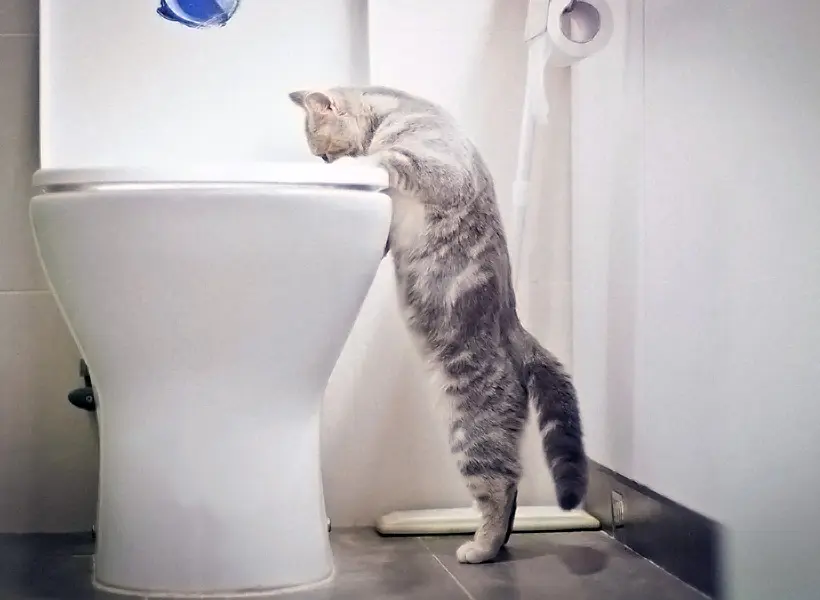Potential Issues of Flushing Cat Poop Down Your Toilet - Protect Your Plumbing
Potential Issues of Flushing Cat Poop Down Your Toilet - Protect Your Plumbing
Blog Article
What are your opinions on How to Dispose of Cat Poop and Litter Without Plastic Bags?

Intro
As cat owners, it's vital to be mindful of exactly how we dispose of our feline pals' waste. While it might seem convenient to flush cat poop down the commode, this practice can have damaging effects for both the environment and human health and wellness.
Alternatives to Flushing
Luckily, there are more secure and more accountable methods to take care of cat poop. Consider the following options:
1. Scoop and Dispose in Trash
One of the most usual method of getting rid of feline poop is to scoop it right into an eco-friendly bag and toss it in the garbage. Be sure to utilize a committed clutter inside story and take care of the waste promptly.
2. Usage Biodegradable Litter
Go with eco-friendly pet cat clutter made from products such as corn or wheat. These litters are environmentally friendly and can be safely gotten rid of in the trash.
3. Bury in the Yard
If you have a lawn, think about burying cat waste in a designated area away from vegetable yards and water resources. Be sure to dig deep enough to prevent contamination of groundwater.
4. Install a Pet Waste Disposal System
Buy a pet dog garbage disposal system especially developed for cat waste. These systems make use of enzymes to break down the waste, minimizing odor and environmental impact.
Health Risks
Along with ecological worries, purging cat waste can also pose health risks to humans. Cat feces may contain Toxoplasma gondii, a bloodsucker that can cause toxoplasmosis-- a possibly extreme disease, specifically for expecting women and people with damaged immune systems.
Environmental Impact
Purging feline poop introduces harmful virus and parasites right into the supply of water, posing a considerable risk to marine environments. These contaminants can adversely impact marine life and compromise water top quality.
Conclusion
Accountable animal possession prolongs beyond supplying food and shelter-- it likewise involves appropriate waste monitoring. By avoiding flushing feline poop down the toilet and selecting different disposal methods, we can lessen our environmental footprint and safeguard human wellness.
Why You Should Never Flush Cat Poop Down the Toilet
A rose by any other name might smell as sweet, but not all poop is created equal. Toilets, and our sewage systems, are designed for human excrement, not animal waste. It might seem like it couldn’t hurt to toss cat feces into the loo, but it’s not a good idea to flush cat poop in the toilet.
First and foremost, assuming your cat uses a litter box, any waste is going to have litter on it. And even the smallest amount of litter can wreak havoc on plumbing.
Over time, small amounts build up, filling up your septic system. Most litter sold today is clumping; it is made from a type of clay that hardens when it gets wet. Ever tried to scrape old clumps from the bottom of a litter box? You know just how cement-hard it can get!
Now imagine just a small clump of that stuck in your pipes. A simple de-clogger like Drano isn’t going to cut it. And that means it’s going to cost you big time to fix it.
Parasitic Contamination
Believe it or not, your healthy kitty may be harboring a nasty parasite. Only cats excrete Toxoplasma in their feces. Yet it rarely causes serious health issues in the cats that are infected. Most people will be fine too if infected. Only pregnant women and people with compromised immune systems are at risk. (If you’ve ever heard how women who are expecting are excused from litter cleaning duty, Toxoplasma is why.)
But other animals may have a problem if infected with the parasite. And human water treatment systems aren’t designed to handle it. As a result, the systems don’t remove the parasite before discharging wastewater into local waterways. Fish, shellfish, and other marine life — otters in particular — are susceptible to toxoplasma. If exposed, most will end up with brain damage and many will die.
Depending on the species of fish, they may end up on someone’s fish hook and, ultimately on someone’s dinner plate. If that someone has a chronic illness, they’re at risk.
Skip the Toilet Training
We know there are folks out there who like to toilet train their cats. And we give them props, it takes a lot of work. But thanks to the toxoplasma, it’s not a good idea.

We were shown that write-up on Don’t flush cat feces down the toilet from an acquaintance on another web property. Feel free to take the time to distribute this blog post if you liked it. I love reading our article about Don’t flush cat feces down the toilet.
Call Today Report this page